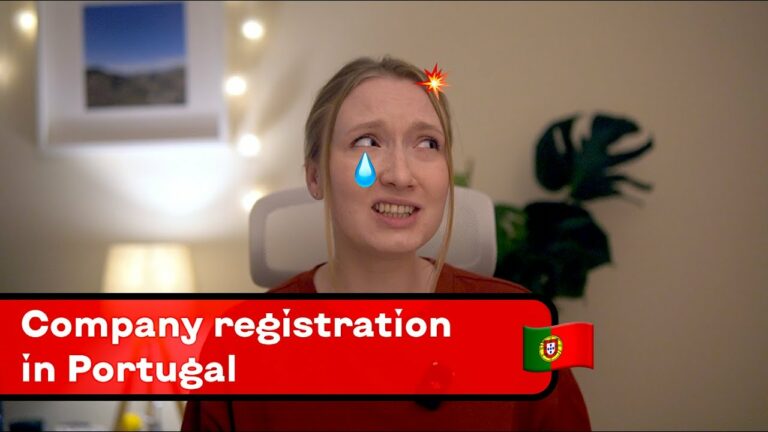Portugal’s Golden Visa Program: Working Remotely in Paradise
Have you ever dreamed of working from a sunny coastal town in Portugal while sipping on a cup of freshly brewed coffee? Well, that dream can become a reality with the rise of remote work. As an expat who has lived and worked in Portugal for several years, I can confidently say that Portugal is one of the best places to work remotely from.
Not only does Portugal have an abundance of breathtaking sceneries, charming towns, and a laid-back lifestyle, but it also offers affordable living costs, a reliable healthcare system, and a thriving expat community. From Lisbon to Porto, Faro to Madeira, there are plenty of locations for digital nomads to set up their laptops and get to work.
One of the most significant advantages of working remotely in Portugal is the work-life balance. With a median temperature of 19°C all year round, it’s easy to find a balance between work and play. You can spend your mornings answering emails and attending virtual meetings, then spend your afternoons exploring the local beaches or hiking trails.
Another advantage is the community of like-minded individuals. Portugal has a growing expat community, and there are plenty of co-working spaces and meetups for digital nomads to connect and network. These communities provide opportunities to learn, collaborate, and make new friends.
Lastly, Portugal’s tax incentives for remote workers are hard to beat. The Non-Habitual Resident (NHR) tax regime allows expats who work remotely to pay a flat tax rate of 20% on their income for ten years. This is a considerable advantage, as it allows remote workers to keep more of their hard-earned money.
So, grab your laptop, pack your bags, and come experience the best of both worlds in Portugal – remote work and expat life.
Can I remote work in Portugal?
If you’re considering working remotely and moving to Portugal, you might be wondering if it’s even possible. The good news is that Portugal is a great destination for digital nomads and remote workers.
The legal aspects of remote work in Portugal
Portugal has visa options for remote workers and freelancers who want to stay in the country for an extended period. Non-EU nationals can apply for the D7 Visa, which allows them to stay in Portugal for up to one year as a self-employed worker or a remote worker. The application process includes proof of income and health insurance, among other requirements.
Internet connectivity in Portugal
If you’re planning to work remotely in Portugal, you’ll need reliable internet connectivity. Portugal has a high-quality internet infrastructure, and most coffee shops and coworking spaces offer free Wi-Fi. However, it’s a good idea to check the internet speed before choosing your accommodation or workspace.
The cost of living in Portugal
Portugal is an affordable destination for remote workers, with a lower cost of living than many other European countries. You can easily find a comfortable and affordable place to stay, either in Lisbon or other cities like Porto or Faro. Additionally, Portugal offers a great quality of life, with plenty of cultural events, food, and wine to enjoy.
The best cities for remote work in Portugal
Lisbon is the most popular destination for digital nomads in Portugal, thanks to its vibrant startup scene, coworking spaces, and excellent quality of life. Other cities like Porto, Faro, and Coimbra are also great options, offering a lower cost of living and a more relaxed pace of life.
Does Portugal tax remote workers?
If you’re considering working remotely in Portugal, one of the questions you might be asking yourself is: “Will I be taxed by Portugal?”
The answer is: it depends.
Residency status
First and foremost, whether or not you are taxed in Portugal as a remote worker depends on your residency status.
If you are a resident of Portugal, you will be subject to Portuguese income tax on your worldwide income. This means that if you are working remotely for a company based outside of Portugal, but you are a resident of Portugal, you will still be taxed on that income.
However, if you are not a resident of Portugal and are only spending a limited amount of time in the country, you may not be subject to Portuguese income tax. This is where things get a bit more complicated.
The 183-day rule
Portugal has a “183-day rule” that determines your tax residency status. If you spend more than 183 days in Portugal in a given year, you are considered a tax resident of Portugal and will be subject to Portuguese income tax on your worldwide income.
However, if you spend less than 183 days in Portugal in a given year, you may not be considered a tax resident of Portugal and may not be subject to Portuguese income tax. This is where things get a bit more complicated.
Double taxation treaties
It’s important to note that even if you are not a resident of Portugal and are not subject to Portuguese income tax on your remote work income, you may still be subject to income tax in your home country.
This is where double taxation treaties come into play. Portugal has signed double taxation treaties with many countries around the world, which aim to avoid double taxation on the same income. These treaties generally provide that if you are taxed on your income in one country, you will receive a credit for that tax paid when you file your taxes in your home country.
Practical tips
So, what does all of this mean for remote workers considering a move to Portugal?
First, it’s important to consider your residency status and the 183-day rule. If you plan to spend more than 183 days in Portugal in a given year, you will likely be subject to Portuguese income tax on your worldwide income.
Second, it’s important to consider any double taxation treaties that may apply to you. If you are a resident of a country that has a double taxation treaty with Portugal, you may be able to avoid double taxation on your remote work income.
Finally, it’s always a good idea to consult with a tax professional who is familiar with the tax laws of both Portugal and your home country. They can help you navigate the complexities of remote work taxation and ensure that you are in compliance with all applicable laws.
Just be sure to consider the tax implications and take steps to ensure that you are in compliance with all relevant laws.
What is the remote work policy for Portugal?
Are you considering moving to Portugal and wondering about the remote work policy? Remote work has become a popular option for many professionals, and Portugal has recognized this trend by creating policies that make it easier for remote workers to live and work in the country.
What is the remote work policy in Portugal?
In 2021, Portugal launched the “Digital Nomads” program, which enables remote workers to work and live in Portugal for up to a year. The program is open to individuals who work remotely for a company based outside of Portugal or who have their own business and work for clients outside of the country.
To be eligible for the program, applicants must meet specific criteria, such as providing proof of income and having valid health insurance. Additionally, participants must work a minimum of 20 hours per week and maintain their tax residency outside of Portugal.
What are the benefits of the Digital Nomads program?
Aside from the obvious benefit of being able to live and work in Portugal, the Digital Nomads program comes with several advantages:
- No income tax on foreign-sourced income for up to ten years.
- No double taxation for foreign income.
- Access to healthcare and social security benefits.
- Assistance with finding accommodation and integration into the local community.
These benefits make it easier for remote workers to relocate to Portugal and enjoy the country’s beautiful scenery, warm weather, and vibrant culture while continuing to work for their employer or clients.
What are some practical tips for remote workers in Portugal?
If you’re considering moving to Portugal as a remote worker, here are some practical tips:
- Research the cost of living in Portugal and ensure that your income can cover your expenses.
- Learn about Portugal’s culture and customs, including the language if possible.
- Consider joining local expat groups or digital nomad communities to connect with like-minded individuals.
- Explore the country’s many attractions, such as its beaches, historical landmarks, and vibrant cities.
With its welcoming culture, stunning landscapes, and favorable tax policies, Portugal is an increasingly popular destination for digital nomads and expats alike.
Can I work remotely in Portugal without a visa?
If you’re considering working remotely in Portugal, you might be wondering whether you need a visa to do so. The good news is that you don’t necessarily need a visa to work remotely in Portugal, but there are some important things to keep in mind.
What is remote work?
Remote work refers to working from a location other than a traditional office. This can include working from home, a co-working space, or while traveling. Remote work is becoming increasingly popular worldwide, as technology makes it easier to work from anywhere.
Do I need a visa to work remotely in Portugal?
If you’re a non-EU citizen, you will need a visa to work in Portugal. However, if you’re working remotely for a company based outside of Portugal, you may be able to do so without a visa. This is because you won’t be taking a job away from a Portuguese citizen and won’t be working for a Portuguese company.
What are the requirements for working remotely in Portugal without a visa?
In order to work remotely in Portugal without a visa, you will need to meet the following requirements:
- Your employer must be based outside of Portugal
- You must not be taking a job away from a Portuguese citizen
- You must not be working for a Portuguese company
- You must not be working in Portugal for more than 180 days per year
It’s important to note that while you may not need a visa to work remotely in Portugal, you will still need to abide by the country’s laws and regulations. This includes registering with the tax authorities and obtaining a Portuguese tax number.
What are the benefits of working remotely in Portugal?
Portugal is a popular destination for digital nomads and remote workers due to its affordable cost of living, beautiful weather, and vibrant culture. The country is also known for its excellent food, wine, and outdoor activities such as surfing and hiking.
Working remotely in Portugal allows you to enjoy all of these benefits while still earning a living. You’ll have the freedom to work from anywhere in the country, whether it’s a beachside cafe or a mountain retreat.
Almada Portugal’s real estate market presents a unique opportunity for foreign buyers seeking to invest in a thriving and dynamic region. With a diverse range of properties and competitive pricing, there is something for everyone in this market. However, it is crucial to work with a knowledgeable and experienced buyer’s agent who can guide you through the legal aspects of buying property and ensure that your investment is protected. With the right guidance and expertise, investing in Almada Portugal’s real estate market can be a lucrative and rewarding experience. So, if you are looking for a reliable and expert perspective on real estate investment in Portugal, look no further than an experienced buyer’s agent who can provide you with comprehensive guides to living, investing, and navigating the Portuguese bureaucracy.






